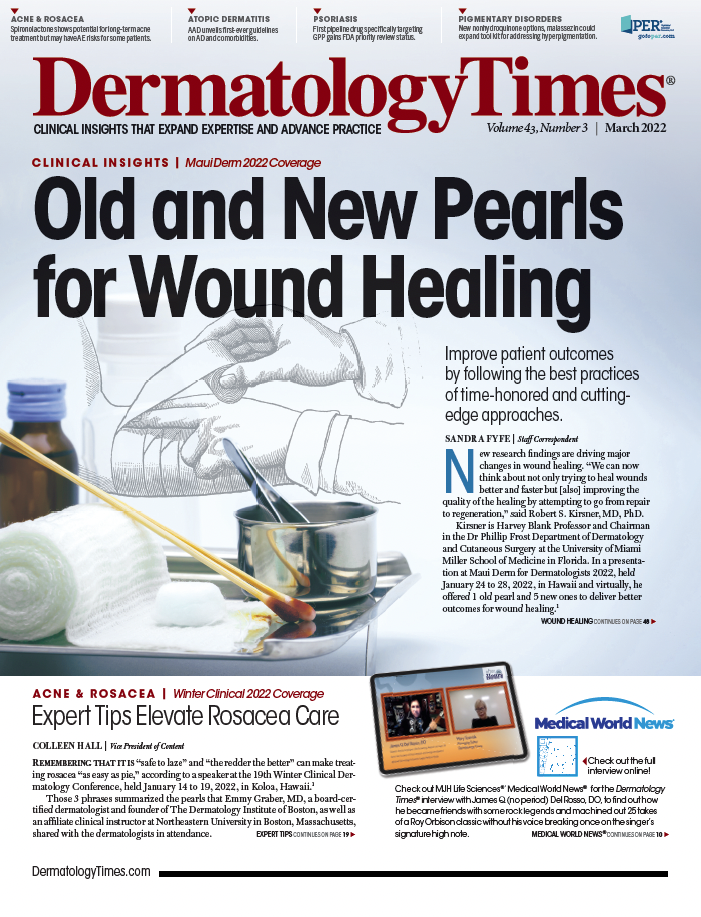- Case-Based Roundtable
- General Dermatology
- Eczema
- Chronic Hand Eczema
- Alopecia
- Aesthetics
- Vitiligo
- COVID-19
- Actinic Keratosis
- Precision Medicine and Biologics
- Rare Disease
- Wound Care
- Rosacea
- Psoriasis
- Psoriatic Arthritis
- Atopic Dermatitis
- Melasma
- NP and PA
- Skin Cancer
- Hidradenitis Suppurativa
- Drug Watch
- Pigmentary Disorders
- Acne
- Pediatric Dermatology
- Practice Management
- Prurigo Nodularis
- Buy-and-Bill
Publication
Article
Dermatology Times
Addressing Misconceptions in Treating Psoriasis
Author(s):
Linda Stein Gold, MD, clears up confusion regarding various treatment options for patients with mild to moderate forms of the disease.
At Maui Derm Hawaii 2023, Linda Stein Gold, MD, director of dermatology clinical research at Henry Ford Health in Detroit, MI, shared clinical pearls on treating patients with mild to moderate psoriasis.
During her session, Stein Gold specified that there are several misconceptions about the common skin disease and that the stigma that patients suffer from in their daily lives is often underestimated. “Many psoriasis patients are very concerned about their disease, and the major impact it has on their quality of life,” she said.1
Although the range of oral therapies continues to expand, Stein Gold noted that using a potent topical corticosteroid remains one of the most effective treatments to treat mild to moderate psoriasis. However, when using topical treatments, combination therapy is generally more effective than monotherapy for psoriasis, especially for plaque psoriasis. Two combination products—calcipotriene/betamethasone (CAL/BDP) and tazarotene/halobetasol lotion—offer complimentary mechanisms of action that minimize adverse effects (eg, decreased irritation and less atrophy). Recent phase 3 studies of halobetasol propionate and tazarotene lotion reveal significantly higher rates of clear at week 8 vs other products.
Stein Gold said another misconception is that nonsteroidal options cannot be used as monotherapy. “One approved nonsteroidal topical is roflumilast, and this is a topical phosphodiesterase 4 (PDE4) inhibitor,” she said. She noted that clinicians should also consider nonsteroidals like tapinarof as a monotherapy for psoriasis, especially in sensitive areas.
Another misconception is that scalp psoriasis is impossible to treat, Stein Gold explained. The disease presents a significant burden to patients due to the difficult-to-treat nature of the site. Data suggests that discussions about patient-preferred topical formulation may be a way to improve patient quality of life and increase treatment adherence. She suggested considering
- etanercept
- adalimumab
- ustekinumab
- andapremilast
All the aforementioned therapies have demonstrated varying levels of efficacy in the scalp and are suitable for first-line options for patients with scalp and body psoriasis, she said.
Reference
1. Stein Gold, L. Biggest Misconceptions Regarding Mild-Moderate Psoriasis. Presented at Maui Derm Hawaii 2023 Conference; January 23-27, 2023; Maui, Hawaii






